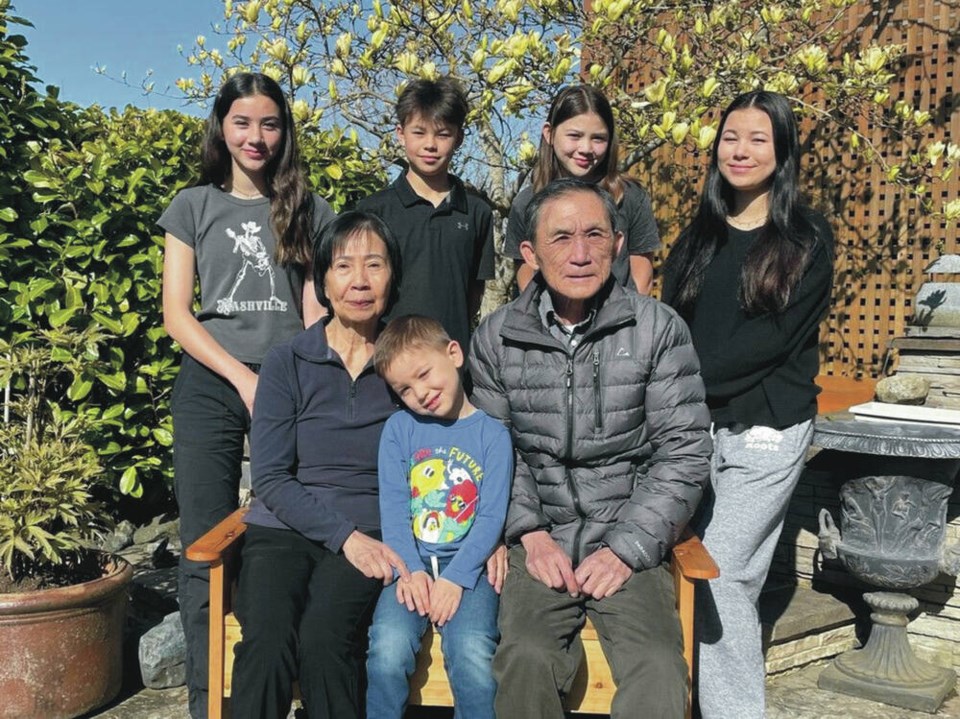Financial adviser Remi Tran, whose 70-year-old father died of liver cancer after a months-long wait to see an oncologist, hopes today’s budget announcement for health care will improve outcomes and spare other families what his endured.
The province is expected to unveil how much of its budget and a near $6-billion surplus will go toward health care. Much of it has already been earmarked for a new physician master agreement, a new payment model for family doctors, a reported $1-billion strategy for mental health and addictions, and $440 million for cancer detection and treatment.
“Any resource we can apply to this is going to be beneficial I’m sure — I just don’t know if it’s going to be enough,” said Tran, whose family lives in the Comox Valley. “How are you going to do that if there’s not enough specialists like oncologists?”
When Tran brought his father, Francis Tran, to an ER in March after several complaints to his GP about stomach problems, a CT scan showed a 10-centimetre tumour and two small ones in his liver. But he didn’t get to see an oncologist in Â鶹´«Ã½Ó³»until June. The time lost was “precious” and the wait was “horrible,” he said. His father died Aug. 1.
“It was a very difficult time for my family and on my dad, though he was very strong,” said Tran. “I understand that cancer is more prevalent and at the same time there’s a backlog of surgeries and other stuff coming out of COVID, so all I can do is hope that we can improve things for people who need screening, and treatment and to see a specialist.”
Joshua Greggain, president of the Doctors of B.C., which represents about 14,000 physicians, said great improvements have been made in physician compensation, and strategies for getting more internationally trained doctors working here and training more doctors and nurses.
But there is also a need for more immediate solutions, such as licensing doctors and nurses at a national level, and possibly adding physician assistants to help carry the workload, said Greggain, who lives in Victoria.
All medical services, from surgical to emergency and mental health and addictions, can use a “massive investment” of cash, he said, “but that cash is only important if we bring the people to the table to do that kind of work.”
When he was a rural physician, about 30 per cent of his practice was dealing with mental health and addictions issues, said Greggain, who also supports continued virtual care services and incorporating psychologists into health coverage.
“Access to counselling services and mental health services [is] something that we as physicians see as a huge gap.”
Premier David Eby recently declined to comment on media reports that a $1-billion package focused on addictions treatment — which would boost detox and treatment beds for substance use and eliminate user fees on beds — went before Treasury Board Feb. 16 and would be revealed in the budget.
The reported plan, similar to a $1.5-billion strategy released by the B.C. Liberals earlier, would expand the model of treatment used at the Red Fish Healing Centre in Coquitlam to other parts of the province. Red Fish is a 105-bed facility that serves people with severe substance-use and mental-health issues.
Leslie McBain of Moms Stop the Harm, who lost her son to a toxic drug poisoning in 2014, applauds any effort to expand access to detox and treatment and recovery beds.
“People who need and want treatment should be able to get treatment as soon as they ask,” said McBain. “So if the government can actually pour money into treatment and recovery which is regulated and has oversight and is subsidized (or free), I’m all for it.”
The B.C. Nurses’ Union, representing about 48,000 nurses, is in negotiations with the province for a new contract.
Many other unions that have ratified agreements with the province have seen 14.3 per cent to 14.9 per cent increases over three years, said president Aman Grewal.
Beyond compensation increases, training, hiring and accrediting of more nurses, and improved bridging programs for LPNs to become RNs, Grewal said it’s important for nurses to be recognized as the backbone of health care, especially during the worst of the pandemic.
“The nurse is the one that is there at the bedside, in the community, at people’s homes, in public health, and in long-term care, keeping the doctors informed, and so they need to be recognized and valued for the highly skilled professionals that they are,” she said.
Hospital Employees’ Union president Meena Brisard, in a statement, said in recent collective bargaining for more than 60,000 health-care workers, a number of provisions were negotiated to increase staffing and to provide significant wage boosts.
“These are important measures and we anticipate that they will be fully funded within the budget tabled tomorrow,” said Brisard.
>>> To comment on this article, write a letter to the editor: [email protected]



